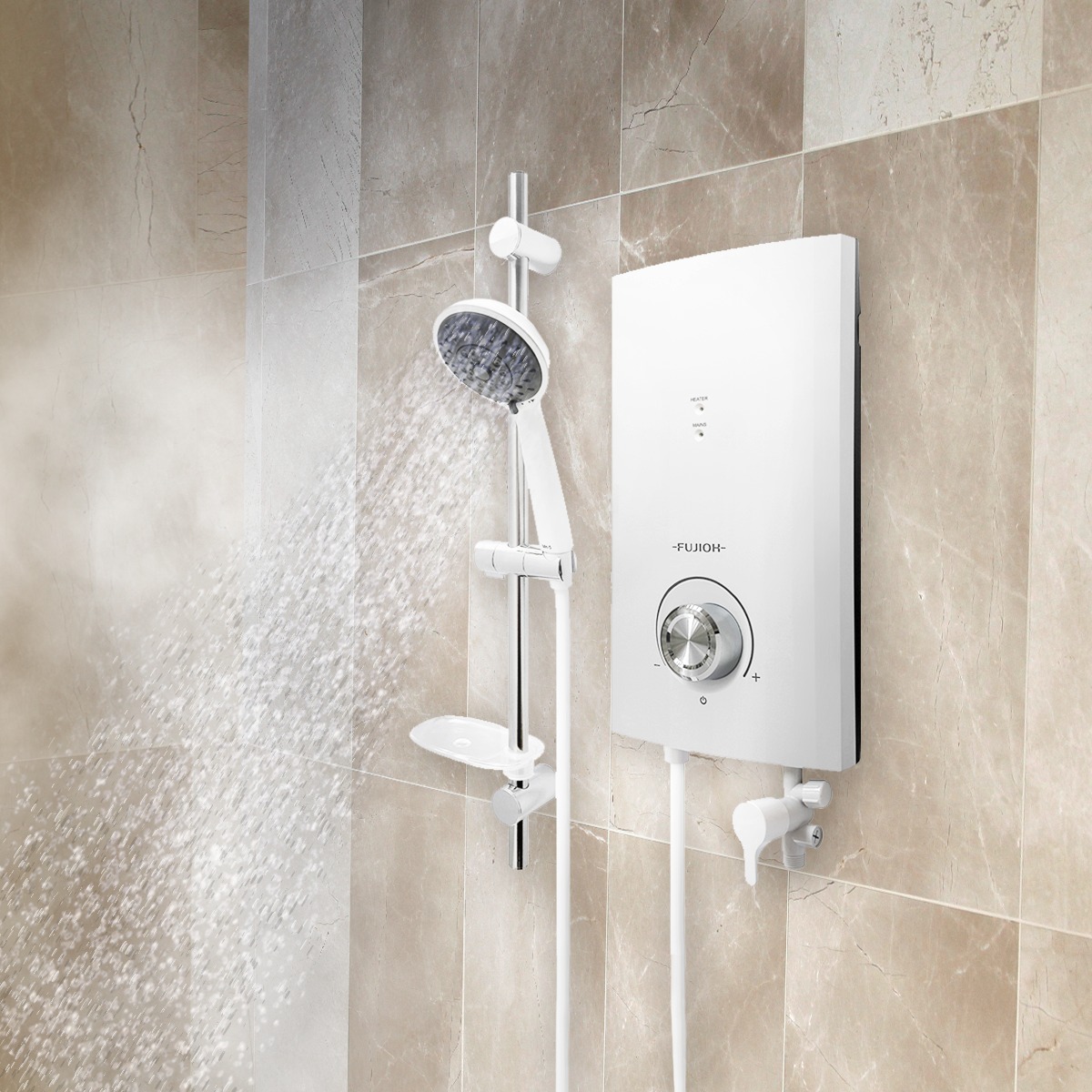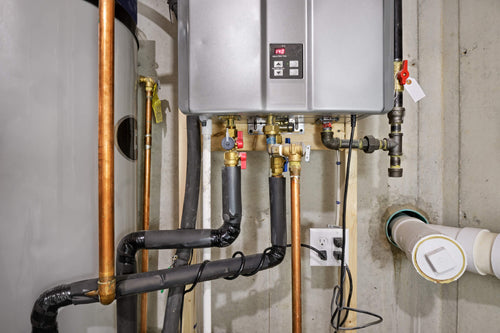Were you on the lookout for ideas involving Pros and Cons of Tankless Water Heater?

In a globe where convenience and effectiveness preponderate, it's not a surprise that house owners are constantly on the lookout for smarter means to handle their home's power intake and convenience. One development that has actually continuously obtained appeal is the tankless hot water heater. Yet what exactly makes these systems stand out from the traditional tank-based designs most of us grew up with? Allow's dive in and check out the benefits of tankless water heaters, aiding you make a decision if it's time to make the switch in your house.
Intro
Image this: you enter the shower after a long day, expecting a soothing waterfall of hot water, only to be greeted by icy beads because the last person used everything up. Sound familiar? Typical water heaters keep a fixed quantity of hot water, indicating you go to the mercy of that container's supply. Tankless systems, on the other hand, heat water as needed. Say goodbye to going out mid-shower, no more wrestling with timetables simply to guarantee hot water is offered.
Recognizing Tankless Water Heaters
What Are Tankless Water Heaters?
Tankless water heaters, in some cases known as on-demand or immediate hot water heater, supply hot water only as it's required. As opposed to keeping gallons of pre-heated water, these devices kick right into activity the moment you turn on the tap. Water passes through a warmth exchanger, heating up in real-time, suggesting you get an undisturbed circulation of hot water without the need for a huge storage tank sitting lazily by.
Just how Do They Vary from Traditional Solutions?
Typical heating units hold a tank of hot water, using power to maintain that container at a constant temperature. Tankless units remove the standing supply, minimizing squandered energy and the large footprint of a large cyndrical tube. Essentially, you're updating from a "accumulation" way of thinking to a "made-to-order" technique.
Typical Kinds Of Tankless Systems
Tankless water heaters typically come in two varieties: gas and electrical. Gas models have a tendency to supply higher circulation prices, ideal for bigger households, while electric models usually offer smaller homes and are usually simpler to install. Additionally, some systems are designed for point-of-use (offering one component) while others can manage the whole home's warm water needs.
Secret Benefits of Tankless Hot Water Heater
Power Effectiveness and Cost Savings
No more heating a giant storage tank's worth of water and keeping it toasty all day. Tankless heating units lower standby power losses, which can reduce energy costs. While the initial expense might be greater, the long-term cost savings commonly justify the investment.
3. Space-Saving Style
If your home is short on storage, eliminating the large tank maximizes important area. Tankless systems are compact and can usually be mounted on walls, tucked away in corners, or installed in tight energy closets without monopolizing the entire space.
4. Longer Life-span
A well-kept tankless hot water heater can outlast its tank-based cousin. Standard tanks may last 10-15 years, while tankless versions can keep chugging along for twenty years or more, making them a solid investment in time.
1. Limitless Warm Water Supply
Ever before needed to arrange showers so every person obtains their reasonable share of warm water? With tankless, that ends up being a thing of the past. As long as the heating system's circulation capability isn't exceeded, you can take back-to-back showers without turning into a popsicle.
5. Improved Water Top Quality
Storing water in a storage tank can in some cases cause sediment build-up or a somewhat "off" taste. With tankless systems, fresh water is warmed instantly, reducing the opportunities of sediment build-up and potentially using cleaner-tasting water.
Factors to consider Before Switching
Though the advantages are engaging, it's important to consider a couple of variables before completely devoting.
Reviewing Your Home's Water Use Patterns
If your home concurrently uses multiple fixtures with high hot water need, see to it the device's circulation price fulfills your needs. Understanding your use patterns helps you select the ideal size and type of tankless heating system.
Upkeep and Treatment Tips
Tankless systems are reasonably reduced maintenance, however they aren't set-it-and-forget-it devices.
Normal Cleansing and Descaling
Difficult water minerals can accumulate in the warm exchanger, affecting efficiency. Normal descaling (typically advised yearly) keeps the device running at peak performance.
Annual Expert Inspections
A yearly checkup from a professional makes sure minor problems are caught early. They'll examine the device's efficiency, seek leaks, and help preserve optimal effectiveness.
Initial Investment Expenses
Tankless heating units usually feature a greater in advance price tag. Between the unit itself and prospective setup modifications, the initial cost may give you sticker shock. Yet keep in mind to view it as a lasting financial investment.
Setup Needs
Depending on your home's infrastructure, you could need extra electrical ability or gas line upgrades. Ensure you understand the installment needs and speak with a specialist to prevent shocks.
Making Sure Correct Air Flow
For gas versions, appropriate ventilation is necessary to securely remove exhaust gases. See to it venting systems are tidy and correctly installed to prevent any kind of possible safety and security hazards.
Comparing Different Brands and Models
Not all tankless hot water heater are created equivalent.
Looking Into Trustworthy Manufacturers
Search for respectable brands with a background of creating top quality systems. A trustworthy manufacturer commonly gives better customer support and longer service warranties.
Installation: DIY or Specialist?
While some property owners cherish taking on tasks themselves, tankless installation might not be the most effective time to break out the toolbox.
Benefits and drawbacks of DIY Setup
A DIY install might conserve money, yet it comes with risks. Wrong setup can cause inefficiency or safety concerns. If you come in handy and have experience, it may be viable-- yet proceed with care.
Checking Out Evaluations and Customer Responses
Individual evaluations and feedback from next-door neighbors or buddies who have gone tankless can supply beneficial understandings. Sometimes, real-life experiences can be extra telling than advertising brochures.
When to Call an Expert Plumbing Technician
For the majority of, calling a pro makes sure whatever's done appropriately. A specialist plumbing professional recognizes neighborhood codes, sizing demands, and venting criteria, decreasing the risk of mishaps.
Optimizing Effectiveness
You've purchased a tankless system-- now optimize its performance.
Ideal Temperature Setups
The majority of people establish their units in between 120-140 F. Adjusting the temperature can boost convenience and savings. Experiment to discover a pleasant spot that does not waste power.
Pairing with Low-Flow Fixtures
Wish to extend your device's capacities? Think about mounting low-flow showerheads and taps. They lower water use, allowing your tankless system to provide a consistent stream of hot water without stressing.
Ecological Impact
Tankless water heaters align with greener living objectives.
Minimized Carbon Footprint
By utilizing less power and just home heating water as needed, tankless systems can decrease your home's carbon footprint, reducing your ecological impact.
Saving Natural Resources
Much less energy usage and less wasted warm water equate right into fewer natural resources being utilized, an ecological win-win.
Who Profits A Lot Of from Tankless Heating units?
The beauty of tankless heaters is that they can match a variety of households.
Large Households vs. Solitary Owners
Huge family members could love the unlimited hot water supply, while single passengers value the power savings from not warming a whole container for simply a single person's morning shower.
House Owners with Limited Room
If your home is short on square video footage, losing the bulky container maximizes space for other basics-- or perhaps simply extra breathing space.
Eco-Conscious Customers
Going tankless aligns with environmentally friendly worths, guaranteeing you're not losing energy or sources.
Future Fads in Tankless Hot Water Heater
The globe of home appliances is ever-evolving, and tankless water heaters are no exception.
Developments in Technology
R&D is frequently improving heat exchangers, making devices much more reliable and resilient. Future versions might be even quieter, extra small, and better fit for varying climates.
Smart Home Combination
Visualize adjusting your water heater's temperature level via an app or receiving maintenance informs on your phone. As clever home technology advances, we'll see more connectivity and benefit.
Final thought
Selecting a tankless water heater is greater than just updating your home's hot water system; it's buying long-term comfort, power effectiveness, and a greener way of living. By considering your household's water use, being mindful of installation needs, and devoting to regular maintenance, you can enjoy a steady stream of warm water without the baggage of a bulky container. As technology develops, you can look forward to also smarter, more efficient tankless options that not just make your life easier however additionally benefit the planet.
5 Benefits of Tankless Water Heaters
Save Valuable Space
Since tankless water heaters do not have a massive 40+ gallon tank of water, they are considerably smaller and can fit in more narrow spaces in your home.
If you are working with limited square footage, a tankless water heater will still provide you with the hot water you need while taking up significantly less space in your home. While the exact size of a tankless water heater varies depending on the brand, some are as small as a carry-on suitcase.
Endless Supply of Hot Water
While a traditional water heater preheats and stores your water in the tank, tankless water heaters do not rely on a reservoir system.
This means that they do not run out of hot water like traditional water heaters since they make hot water as needed. Traditional water heaters need to stop and reheat water when the tank inevitably runs out, but tankless water heaters do not have this issue.
Provide Warm Water On-Demand
As mentioned above, tankless water heaters do not preheat a certain amount of water and then store it in a massive tank to be used later. An advantage of installing a tankless water heater includes water being heated instantly whenever you turn on the faucet.
When you turn on the water, it will travel through a heat exchanger in the unit and be heated with either an electric element or a natural gas burner. Gone are the days of having to ration out your hot water to make sure that you do not run out.
Longer Life Cycle
Not only do tankless water heaters provide an endless supply of hot water for your home whenever you want it, but these units tend to have a longer lifespan than water heaters with tanks.
Tanked water heaters have an average lifespan of around 10 years, as the tank is prone to corrosion, leading to serious issues. In comparison, tankless water heaters can last for around 15 to 20 years with the proper maintenance and tune-ups.
Energy Efficient
Compared to traditional water heaters, tankless water heaters are a more energy-efficient water heating option for your home. Tank water heaters must heat and reheat the water stored in the tank throughout the day, even if you are not home.
This energy use adds up over time, leading to an increase in your energy bills and added strain on your unit. A benefit of buying a tankless water heater includes saving money since it only operates when you turn on the hot water. Since it only heats up as needed, this can decrease your energy bills and save you money in the long run.
https://callrandazzo.com/blog/5-benefits-of-tankless-water-heaters/

Do you like more info about Why You Should Consider a Tankless Water Heater? Put a comment down below. We'd be happy to listen to your reactions about this blog post. We are looking forward that you visit us again soon. Do you know about someone else who is excited by the subject? Do not hesitate to share it. I cherish reading our article about Pros and Cons of Tankless Water Heater.
Article